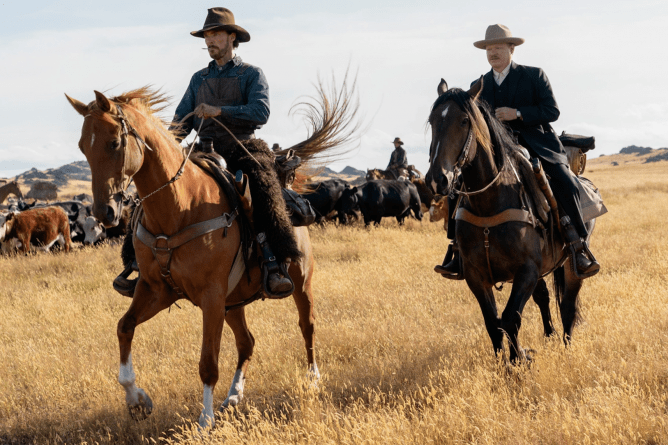Civil War is a frightening vision of what America could become. Through the lens of a group of war photographers and journalists, director Alex Garland (Ex Machina, Annihilation) captures the horrors of a United States in the middle of a civil war. But why is this happening? And does the film’s logic make sense? The bigger question one might be considering is whether that is important from the perspective of the journalists at the forefront of the film. The only story left to capture in this hellscape is an interview with the president (Nick Offerman). From New York to Washington, D.C., they must traverse through cities filled with death and gun happy soldiers. While Civil War is artfully shot with an ensemble worthy of the highest praise, the questions left unanswered distract from the enjoyment and understanding of Garland’s film. There are so many interpretations to be made with the lack of context we’re given that the director’s intentions get lost somewhere amid the chaos.

Civil War opens with a claustrophobic close-up of the president practicing a speech to the American people. While he muses about his own military’s success, shots are intercut with riots and bloody images from ravished cities. The president is a fascist leader in his third term in office. There are no victories, but incomprehensible violence in the face of corrupt leadership. Garland chooses to confront the audience with what could happen rather than picking a side. This is America at its worst.
Continuing from the opening scene, the film’s protagonist, photographer Lee Smith (Kirsten Dunst), and her colleague Joel (Wagner Moura), head to a riot in New York City, where they meet Jessie Cullen (Cailee Spaeny) and witness a terrorist attack. The terrorist is a white woman holding an American flag. This is only a glimpse of what’s coming next in Civil War. The song choices are unsuitable for the film, particularly in this opening sequence. Since music isn’t an important aspect of any character, each drop feels as if Garland put it there because it sounded cool—it doesn’t work. Along with this, the film’s hyper realistic high-key lighting seems off-putting. Though this is an important element of the director’s style, the film would’ve worked better with shadows and dark frames.
/cdn.vox-cdn.com/uploads/chorus_asset/file/25159756/Civil_War_Official_Trailer_A24.jpg)
On their way to Washington, D.C., the journalists encounter a militia soldier (Jesse Plemons) and his partner. Smith is faced with the dilemma of confronting the men who “don’t want to be seen doing what they’re doing” or remaining behind the camera as an impassive spectator. The problem is that the soldiers have Jessie held hostage and a truckload of bodies to dump in a pit—someone is clearly going to die. The tension is palpable due to Plemons’ small but terrifying role. Audiences have no clue what side the soldiers are on; in fact, many of the soldiers blend in with each other. It’s near impossible to discern who is fighting for who in Civil War. In an America where soldiers shoot and don’t ask questions, Plemons, playing an absolute lunatic, plays into their fears and delivers the most memorable performance in the film.
Besides the war itself making little sense, Civil War is decent enough to make up for its lack of logic. The journalists aren’t concerned with what each side is fighting for but with capturing the shot and letting others make the difficult decisions. There’s a lot to appreciate about Garland’s characters. As much as they try to survive, they know death may await them in D.C. The D.C. sequence is the most remarkable, anxiety-inducing piece of the film. It’s well worth seeing this film in IMAX to experience the full depth of the film’s warzone.
Civil War is divisive; it’s unclear whether its faults are warranted or a cheap cop-out, but it sure is ambitious.
3/5 STARS


